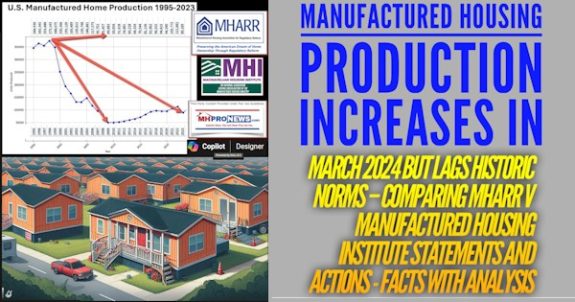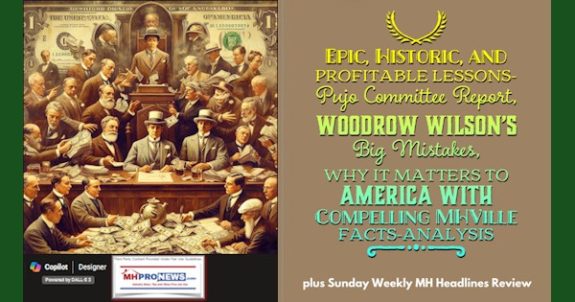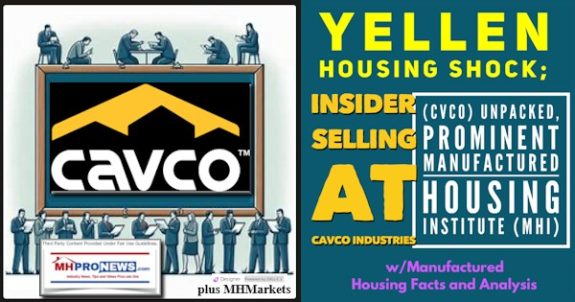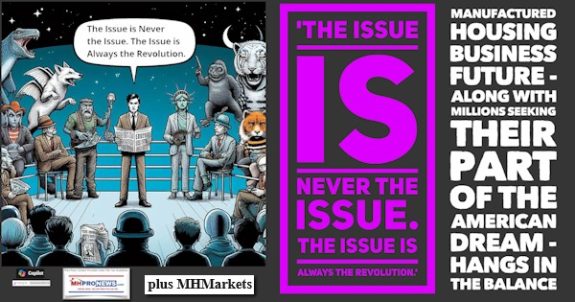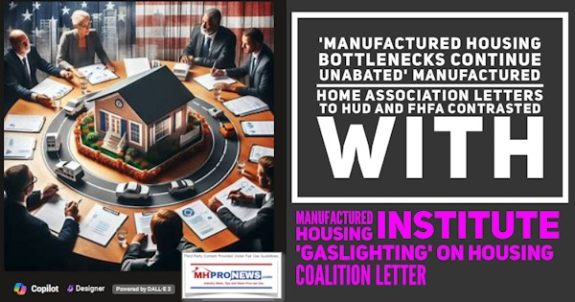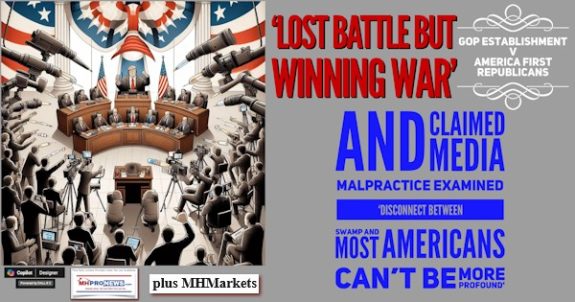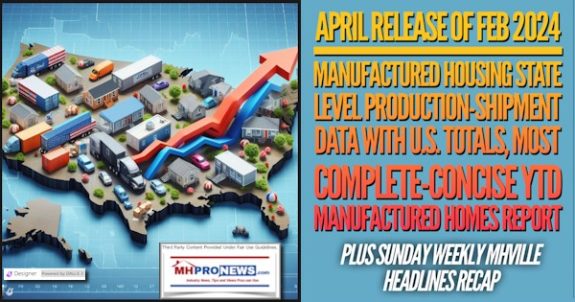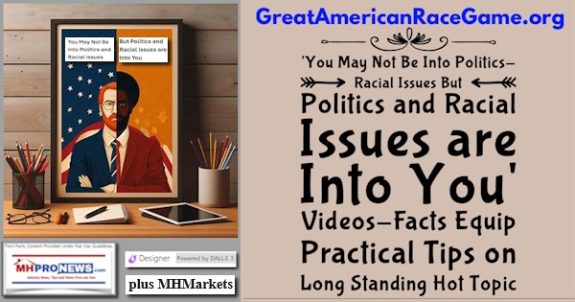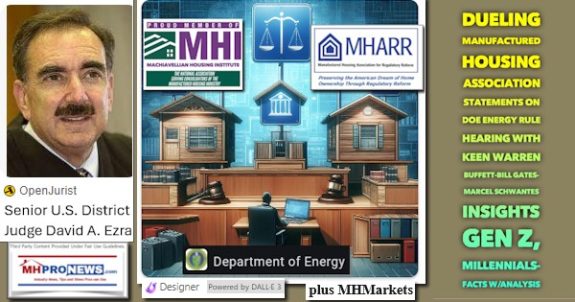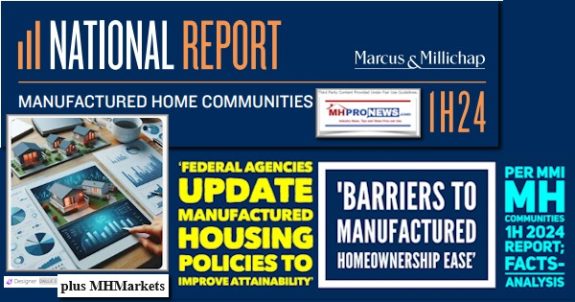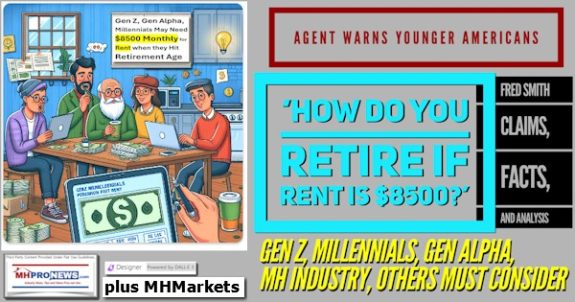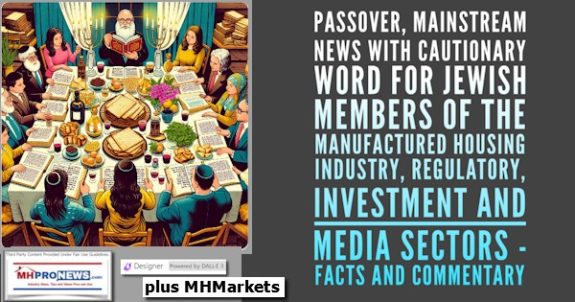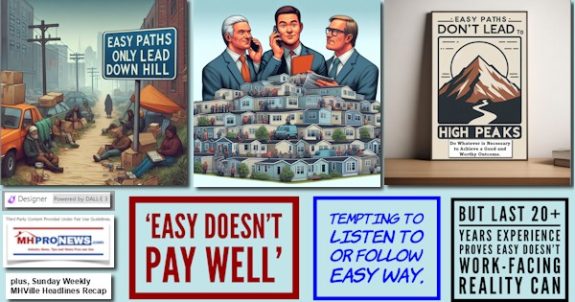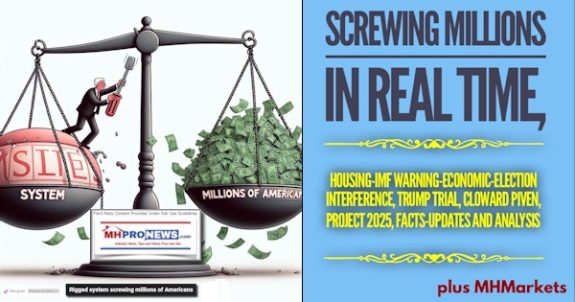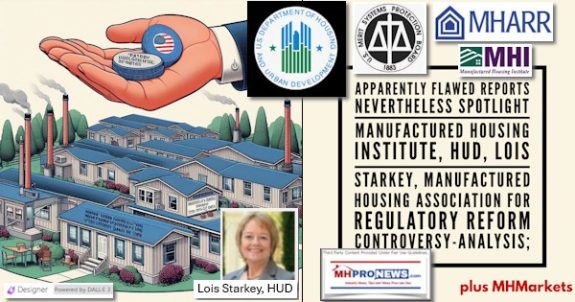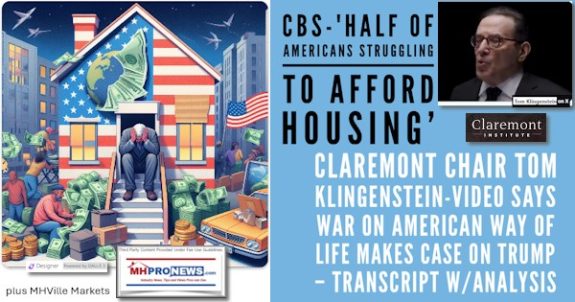
MHI and MHARR Leadership Meets with HUD
On September 22, 2011, a joint delegation of MHI and MHARR leadership and staff met with Ms. Carol Galante, the new Acting HUD Federal Housing Commissioner-Assistant Secretary for Housing. Ms. Galante, formerly a HUD Deputy Assistant Secretary for Multi-Family Housing, was appointed to this position in July 2011 when the prior Commissioner, Mr. Bob Ryan, became a senior advisor to HUD Secretary Shaun Donovan.
The joint meeting, while partly introductory, also addressed three substantive issues of industry concern that were agreed to in advance by the participants from both national associations, led by their respective Chairmen, Joe Stegmayer, Cavco Homes and John Bostick, Sunshine Homes. Other representatives attending were Don Glisson, Triad Financial Services; Phyllis Knight, Champion Home Builders; Mike Cappaert, Cappaert Housing; and Ed Hussey, Liberty Homes, as well as the association staff of Danny Ghorbani and Thayer Long.
The first issue addressed was the critical need for additional sources of manufactured home purchase-money financing, with a specific emphasis on Federal Housing Administration (FHA) Title I financing and the restrictive limits on the loan guarantee as well as the high net worth requirements needed by lenders in order to securitize their loans through Ginnie Mae. A Ginnie Mae guaranty allows mortgage lenders to obtain a better price for their mortgage loans in the secondary market. The lenders can then use the proceeds to make new mortgage loans available.
Second, the group stressed the need for an appointed, non-career manufactured housing program administrator, as provided by the Manufactured Housing Improvement Act of 2000. An appointed-level administrator is essential to raise the visibility of the manufactured housing program at HUD, which is nearly ignored in HUD’s 2010-2015 “Strategic Plan,” to act as an advocate of manufactured housing as an affordable housing solution both within and beyond HUD and to more effectively manage the HUD manufactured housing program.
Third, the group urged the Commissioner to appoint a collective industry representative to the Manufactured Housing Consensus Committee (MHCC), to ensure that the institutional memory, collective knowledge, expertise and know-how that the industry has assembled within its national associations are brought to bear within that extremely important forum.
As a follow-up to the meeting, the group plans to send a joint letter to the Commissioner regarding these matters.
MHCC Subcommittee Considers Accessibility Standards for Manufactured Homes
The General Subcommittee of the Manufactured Housing Consensus Committee met this week to consider new accessibility standards for the HUD Code. The proposals have been pending before the Committee for at least four years. With only one of the 10 subcommittee members dissenting, and one abstaining, the subcommittee recommended changes that would require a minimum of one exterior door to have a wider clear opening from 28” to 32” and hallways for homes 14 feet wide or larger would be increased to 30” from 28″.
Discussion over the costs of the proposals was contentious, as proponents were not able to adequately justify the increased consumer costs. Producer members of the committee suggested that the costs could be as much as $100.00 per home for a wider door rather than the $15.00 per door suggested by the proponents. One time costs to change home designs and obtain third party approval could range from $150 to $300 per home for those home designs requiring a change.
Proponents of these measures scaled back their proposals significantly in order to obtain support from the producer members on the subcommittee. MHI has argued that accessibility standards should be voluntary, rather than mandatory. The full committee will consider these recommendations in October.
Proposed Government Ethics Rules Seek to Limit Federal Employee Participation in Association Activities
On September 13, 2011, the Obama Administration proposed new rules that would restrict government employees from attending “widely attended gatherings” held by trade associations.
The proposed rules issued by the Office of Government Ethics, would prohibit any government employee from attending a trade association event, accepting a de minimus gift, or attending a social gathering if that association employs a registered lobbyist. The regulations carve out exceptions for some nonprofits that hold educational programs, but only for those trade associations where the “primary concern of such associations generally is the education and development of members of a profession or discipline.”
MHI strongly believes that attending association programs and events gives administration officials valuable insights and perspectives to consider in their promulgation of new regulations and policies. MHI plans to comment on the proposed rules, and will join a coalition of other trade associations to oppose the proposed rule. Comments are due November 14, 2011.
Ability-to-Repay Final Rule Expected Early 2012
During a September 20th conference hosted by the American Bankers Association, Consumer Financial Protection Bureau (CFPB) acting head Raj Date indicated that final rules enacting ability-to-repay requirements outlined in the Dodd-Frank Act would be released in final form in early-2012.
The ability-to-repay requirements establish minimum underwriting standards for residential mortgages. Lenders can bypass these requirements by making “qualified mortgages.” A qualified mortgage is one that, among other criteria, limits points and fees to consumers; is fully amortized, has a loan term that does not exceed thirty years; and the income of the borrower is fully verified.
In its proposed rule and request for comments released earlier this summer, the CFPB indicated that smaller sized loans (under $75,000) that the manufactured housing industry relies on would be allowed to exceed the three percent cap on points and fees outlined in the legislation—in an attempt to allow lenders greater opportunity to recoup origination costs.
In response to the proposed rule, MHI submitted comments urging the CFPB to allow manufactured home lenders the greatest ability possible to recoup origination costs. To view MHI’s full comments,
MHI-PAC Hosts Congressman Gary Miller of California
On Thursday, MHI-PAC in conjunction with Porterfield & Lowenthal, LLC hosted a very successful fundraising event for Congressman Gary Miller (R-42th-CA). Representative Miller is a key member of the House Financial Services Committee and will be a driving force behind MHI’s revisions in the House of Representatives to the Dodd–Frank Wall Street Reform and Consumer Protection Act. During his time in Congress, he has proven himself to be a true leader on housing issues. Special thanks to Mr. Joe Stegmayer, President and CEO of Cavco Industries and Ms. Phyllis Knight, Executive VP & Chief Financial Officer for attending this successful fundraiser which raised $15,000 for the Congressman’s re-election campaign. Due to California’s redistricting plan, Congressman Miller faces a very unfortunate primary contest with Representative Ed Royce.






